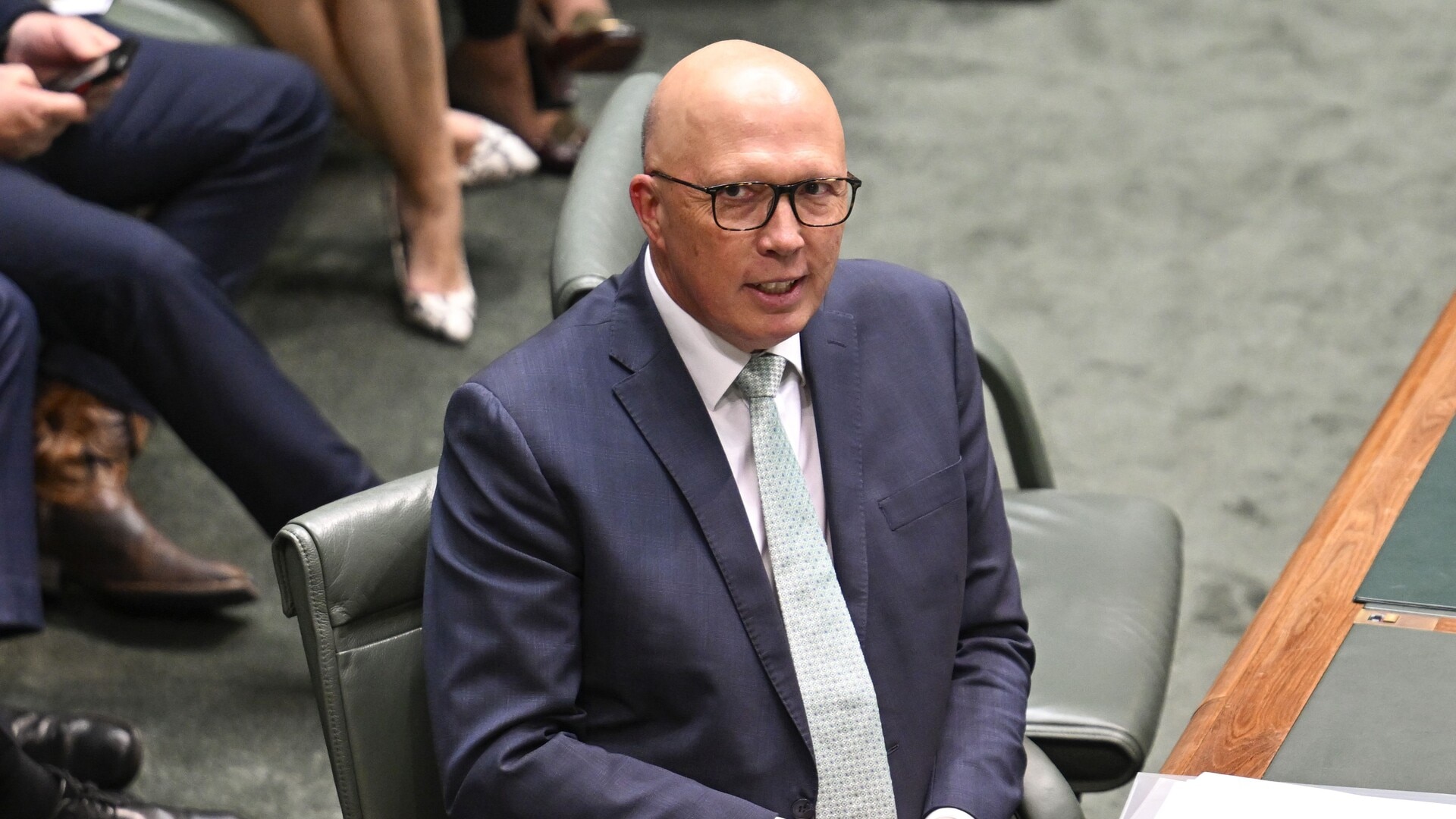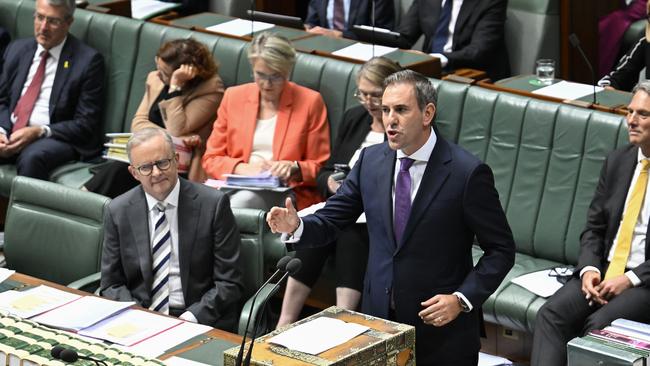
I can see the tactical logic behind Dutton’s move. He is offering more household budget relief, and far sooner, than Labor’s derisory income tax reduction does. And he is targeting lower-income, car-dependent people in suburban marginal electorates.
Yes, Labor can point out that Dutton’s excise reduction will only apply for 12 months, but its own tax cut will be fully eroded by bracket creep by 2031-32.
Anthony Albanese and Jim Chalmers spent Wednesday crowing about Dutton opposing tax cuts. He has snookered them only a day later.
But if Dutton has won the tactical contest, in strategic terms he has capitulated to Labor. By framing the excise reduction as a cost-of-living measure, he has endorsed the government’s outrageous falsehood that short-term “hand-outs” reduce, rather than raise, inflationary pressure in the economy. Rather than exposing this folly for what it is, he has adopted it as the leitmotif of his entire campaign.

Better to adopt a “me too” approach to Labor, apparently, than to take a principled or courageous stand against it.
This is not the Dutton who bravely opposed the voice or exposed Labor’s collective antinuclear neurosis. Other economists are arguing that Dutton’s excise reduction is poor tax policy. It is, but provided it is reversed after 12 months, it’s not the end of the world.
Let’s not forget that the fuel excise base has been shrinking for decades (by almost one-third since 2000), and is projected to fall further (if there is greater future take-up of electric vehicles).
It is not a major revenue source, with excise (fuel, tobacco and alcohol) and customs duty accounting for only 7 per cent of tax collected, down from 25 per cent 40 years ago.
If we want to reduce our dependence on personal income tax, the best and only politically realistic option is to cut spending, not raise other taxes.
Many are arguing that Dutton has drawn inspiration from Howard.
In early 2001, when he was behind in the polls, Howard reduced the petrol excise rate by 1½ cents a litre and got rid of indexation.
This was not Howard at his best, but some form of relief was necessary to neutralise opposition to his recently introduced goods and services tax. (World oil prices spiked in early 2001, which focused attention on the government’s failure to fully compensate motorists for the GST’s impact on petrol prices).
In stark contrast, Dutton’s excise change has no redeeming policy rationale. It is no different to Morrison’s 2022 reduction, which was purely political.
If Dutton were serious about emulating Howard’s reform legacy, he would have instead announced his intention to eliminate bracket creep for good.
When explained to the electorate, this would have immediate political appeal. We index pensions, unemployment benefits and other welfare payments for inflation, but why not our income tax thresholds?
Even more importantly, getting rid of bracket creep would be a significant economic and fiscal reform in its own right. It would put an immediate check on the growth of government, denying Canberra access to its hidden, regressive and incentive-destroying inflation tax.
Instead of feeding the spending beast, we would be putting it on a permanent diet – as happens in Washington, Berlin, Ottawa and most other OECD countries.

As my former secretary, Ted Evans, told me once, bracket creep is lazy fiscal policy.
Even Ken Henry has realised, perhaps a little belatedly, the inherent unfairness of this practice, which hits younger workers the hardest and keeps us addicted to economically damaging personal income tax.
If Dutton committed to getting rid of bracket creep in the election campaign, he would ideally identify specific spending cuts to pay for it – for the first few years, at least. But beyond this time frame, finding savings for tax threshold indexation should be a regular part of pre-budget planning – setting an overall funding envelope within which Canberra has to operate.
We are not talking about huge sums, although the cost rises over time – about $4bn each year initially (less than 1 per cent of annual revenue raised), but increasing to $10bn after a decade. We need a major reduction in our income tax rates across the board, paid for by permanently smaller government, but ending bracket creep is a worthwhile initial step.
I wrote in these pages in February that we face a Seinfeld election. The world trading system and global security are under threat. Our public finances are unsustainable, with an out-of-control NDIS swallowing up a rising share of the budget. We struggle under a self-imposed net-zero energy tax, which will limit future growth and continue to eat away at living standards.
Yet the response of our two major parties, comfortable in the political duopoly our electoral system has given them, is to ignore all of this and squabble instead over competing cost-of-living handouts.
Tweedledum’s $14 a week or Tweedledee’s $10 a week. Take your pick. We deserve better than this.
David Pearl is a former Treasury assistant secretary.




A major part of Peter Dutton’s budget reply speech on Thursday night was a pledge to halve the rate of petrol excise for 12 months. Commentators have said he has taken a page out of John Howard’s playbook, given his similar move in 2001, but for me it’s from Scott Morrison’s failed 2022 one.